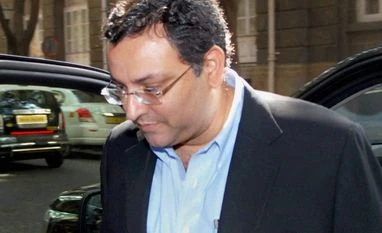Cyrus Mistry has hit back at Tata Sons, saying the group holding company has stooped to a new low by questioning many eminent personalities who serve as independent directors on the boards of Tata Chemicals and Indian Hotels Company (IHCL).
In a statement on Sunday evening, Mistry’s office said these eminent people, who serve as independent directors, are now being questioned by Tata Sons for undertaking their fiduciary duty of protecting the shareholders of the companies.
The boards of these two companies include Deepak Parekh, Nusli Wadia, Gautam Banerjee, Ireena Vital, Keki Dadiseth, Nadir Godrej, Nasser Munjee, Vibha Paul Rishi, and Yashwant Thorat. Of this, six were appointed during Ratan Tata’s tenure and two of these directors, Dadiseth and Munjee, also serve on Tata Trusts board, the statement said. In both IHCL and Tata Chemicals, the independent directors were unanimous in their support of Mistry as Chairman. “The endorsement is a reflection of Mistry’s conduct as chairman in upholding the highest standards of corporate governance and in taking the board along in all decisions that impact the company,” the statement said, reacting to Tata Sons’ claim Mistry and independent directors were trying to take over operating companies.
“To question the independence of these directors… and to suggest that ‘ulterior objectives’ and ‘clever strategy’ can sway these eminent names in undertaking their fiduciary duties... as independent directors is absolutely astonishing and really speaks to how low Tata Sons has unfortunately stooped in their public statements,” the statement said.
Tata Sons responded to Mistry’s statement saying that it had already put forward facts in its November 10 statement so that its decision to replace Mistry as chairman is seen in the desired perspective. “The Tata Sons management will do whatever is required to deal with the situation,” the statement said.
The statement added, “In the light of the developments since November 4, 2016, Tata Sons reiterates that it is crucially important for boards, including independent directors, to consider that their views and positions ensure that the future of Tata companies is protected, taking into consideration the interest of all stakeholders.”
More From This Section
Mistry said it was his insistence on a strong corporate governance structure across Tata group of companies that has led to his ouster from Tata Sons board last month. Mistry said he wanted a strong corporate governance framework that balanced the interest of the promoter with minority shareholders’ rights. In addition, between Tata Trusts, Tata Sons, and the Tata operating companies, there was a need to be compliant with the law relating to insider trading by ensuring communication of unpublished price sensitive information strictly on a need to know basis.
On the Tata group allegation that operating companies were drifting away, Mistry said this is furthest from the truth. “To understand the rationale behind the new Tata group governance model, one needs to understand the contextual difference within which the group currently functions,” the statement said.
Prior to Mistry’s chairmanship, all the board members of Tata Sons, with exception of him, were internal to the group, being either Vice Chairmen of group companies or members of GCC.
“Today, the structure is exactly the opposite. The requirement to have 30 per cent Trust nominees and 30 per cent independent directors meant that in addition to Ishaat Hussain and Mistry, there was possibly only one more senior group centre member who could be on the Board of Tata Sons. This limited the involvement of other group centre members on the Tata Sons board. Moreover, in the past three years, all these internal members, with the exception of Husain have retired. This was a generational change,” said the statement.
As agreed with the Tata Sons board, the governance mechanism to protect Tata Sons interests and ensure adequate group representation on operating company boards, was to have GEC members, other senior group centre members (such as Farokh Subedar, S Padmanabhan), and select CEOs (such as Bhaskar Bhat, Noel Tata) on the boards of operating companies.
“In the spirit of protecting the interests of all stakeholders, employees, and minority shareholders, the strategy of individual operating companies Mistry believed should be created by their management and approved by their own board of directors. By placing the responsibility where it should lie, with the board of directors of the operating companies, allowed the independent directors to ensure that the interests of minority shareholders were aligned with the operating company’s strategy as well as the overall direction of the Tata Group,” the Mistry’s office said in a statement.
READ OUR FULL COVERAGE OF THE TATA-MISTRY BOARDROOM BATTLE
)